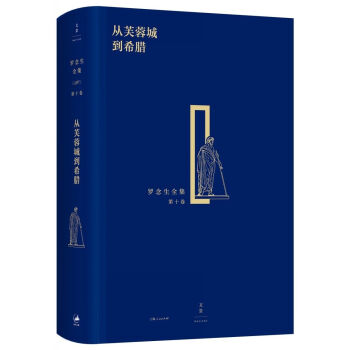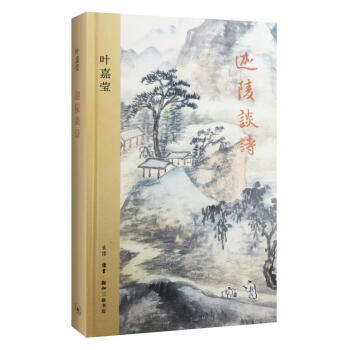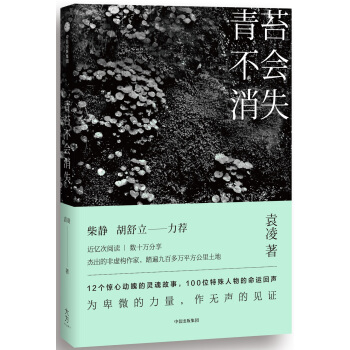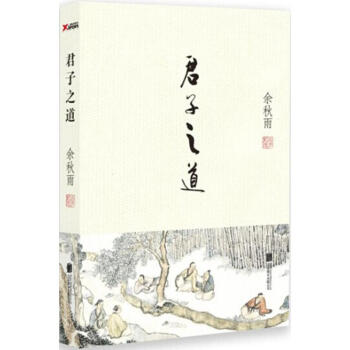![许渊冲英译中国经典诗文集-诗经(精装)(汉英) [Book of Poetry]](https://pic.windowsfront.com/10924279/5996a49aN80a8b78b.jpg)

具体描述
编辑推荐
丛书译者为许渊冲先生,其从事翻译工作70年,2010年12月荣获“中国翻译文化终身成就奖”;2014年8月荣获由国际译联颁发的文学翻译领域很高奖项——“北极光”杰出文学翻译奖,成为首位获该奖的亚洲翻译家。
经许先生的妙手,许多中国经典诗文被译成出色的英文韵语。这套汉英对照版“许译中国经典诗文集”荟萃许先生具代表性的英文译作14种,汉语部分采用中华书局版本。这些作品包括多种体裁,上起先秦,下至清代,既是联接所有中国人思想、情感的文化纽带,也是中国文化走向世界的重要桥梁。阅读和了解这些作品,即可尽览中国文化的“源头活水”。相信这套许氏译本能使英语读者分享孔子、老子的智慧,分享唐诗、宋词、中国古典戏曲的优美,并以此促进东西方文化的交流。
2015年2月2日,由中国出版协会举办的第五届中华优秀出版物奖在京揭晓, “许译中国经典诗文集”(汉英对照)(14册)荣获“提名奖”。
内容简介
许渊冲--诗译英法专家 ,北京大学教授,翻译家。希望这套许氏译本能使英语读者对中国经典诗文也能“知之,好之,乐之”,能够分享孔子、老子的智慧,分享唐诗、宋词、中国古典戏曲的优美,并以此促进东西文化的交流。值得珍藏。许渊冲先生从事翻译工作70年,2010年12月荣获“中国翻译文化终身成就奖”。他被称为将中国诗词译成英法韵文的专家,经他的妙手,许多中国经典诗文被译成出色的英文和法文韵语。这套“中国经典诗文集”就是由他所译,前半部分是英文,后半部分是中文。
Ancient Chinese classic poems are exquisite works of art. As far as 2,000 years ago, Chinese poets composed the beautiful work Book of Poetry and Elegies of the South, Later, they created more splendid Tang poetry and Song lyrics. Such classic works as Thus Spoke the Master and Laws: Divine and Human were extremely significant in building and shaping the culture of the Chinese nation. These works are both a cultural bond linking the thoughts and affections of Chinese people and an important bridge for Chinese culture and the world. Mr. Xu Yuanchong has been engaged in translation for 70 years. In December 2010, he won the Lifetime Achievement Award in Translation conferred by the Translators Association of China (TAC). He is honored as the only expert who translates Chinese poems into both English and French. After his excellent interpretation, many Chinese classic poems have been further refined into perfect English and French rhymes. This collection of Classical Chinese Poetry and Prose gathers his most representative English translations. It includes the classic works Thus Spoke the Master, Laws: Divine and Human and dramas such as Romance of the Western Bower, Dream in Peony Pavilion, Love in Long-life Hall and Peach Blossom Painted with Blood. The largest part of the collection includes the translation of selected poems from different dynasties. The selection includes various types of poems, lyrics and Yuan, Ming and Qing dynasty songs. The selected works start from the pre-Qin era to the Qing Dynasty, covering almost the entire history of classic poems in China. Reading these works is like tasting "living water from the source" of Chinese culture. We hope this collection will help English readers "know, love and appreciate" Chinese classic poems, share the intelligence of Confucius and Lao Tzu, share the gracefulness of Tang Dynasty poems, Song lyrics and classic operas and songs and promote exchanges between Eastern and Western culture. This book is one of the 14 books of Classical Chinese Poetry and Prose, a translation of Confucian classics Thus Spoke the Master.
作者简介
许渊冲,1921年出生于江西南昌。先后毕业于西南联大、巴黎大学。北京大学文学翻译教授。英文著作有《中诗英韵探胜》、《逝水年华》。译作方面,除了由英国企鹅出版公司出版的汉译英《不朽之歌》外,还有《诗经》、《楚辞》、《唐诗三百首》、《宋词三百首》、《李白诗选》、《苏东坡诗词选》、《西厢记》和《毛泽东诗词选》等英译或法译。外译汉则有福楼拜《包法利夫人》等世界文学名著多种。2010年,荣获中国翻译文化终身成就奖。内页插图
精彩书评
历代诗、词、曲译成英文,且能押韵自然,功力过人,实为有史以来di一。
——顾毓琇,已故美国宾州大学荣誉退休教授
许教授已因其对中国诗歌的韵译而赢得世界性的声誉。
——奚如谷,加州大学伯克利分校教授
许教授的《楚辞》英译当算英美文学里的一座高峰。
——寇志明,澳大利亚墨尔本大学学者
许译《西厢记》在艺术性和吸引力方面,可以和莎士比亚的《罗密欧与朱丽叶》媲美。
——英国智慧女神出版社
目录
Contents
目 录
卷 一
Preface
序
Book of Songs
国 风
Songs Collected South of the Capital, Modern Shaanxi and Henan
周 南
Cooing and Wooing
关 雎
Home-going of the Bride
葛 覃
Mutual Longing
卷 耳
Married Happiness
樛 木
Blessed with Children
螽 斯
The Newly-wed
桃 夭
The Rabbit Catcher
兔 罝
Plantain Gathering
芣 苢
A Woodcutter’s Love
汉 广
A Wife Waiting
汝 坟
The Good Unicorn
麟之趾
Songs Collected South of Shao, Modern Henan
召 南
The Magpie’s Nest
鹊 巢
The Sacrifice
采 蘩
The Grasshoppers
草 虫
Sacrifice before Wedding
采
The Duke of Shao
甘 棠
I Accuse
行 露
Officials in Lamb Furs
羔 羊
Why Not Return?
殷其雷
An Old Maid
摽有梅
The Starlets
小 星
A Merchant’s Wife
江有汜
A Deer Killer and a Jadelike Maiden
野有死麕
The Princess’ wedding
何彼矣
A Hunter
驺 虞
......
精彩书摘
First Decade of Odes
To Guests*
How gaily call the deer
While grazing in the shade!
I have welcome guests here.
Let lute and pipe be played.
Let offerings appear
And lute and strings vibrate.
If you love me, friends dear,
Help me to rule the state.
How gaily call the deer
While eating southernwood!
I have welcome guests here
Who give advices good.
My people are benign;
My lords will learn from you.
I have delicious wine;
You may enjoy my brew.
How gaily call the deer
Eating grass in the shade!
I have welcome guests here.
Let lute and flute be played.
Play lute and zither fine;
We may enjoy our best.
I have delicious wine
To delight the heart of my guest.
卷 四
小 雅
“雅者,正也,正乐之歌也。”(朱熹《诗集传》)雅与风一样,是乐歌之名,又有大小雅之分。二雅大都是贵族士大夫的作品。
鹿鸣之什
“雅、颂无诸国别,故以十篇为一卷,而谓之什,犹军法以十人为什也。”(朱熹《诗集传》)
鹿 鸣
呦呦鹿鸣①,食野之苹②。我有嘉宾,鼓瑟吹笙。吹笙鼓簧③,承筐是将④。人之好我,示我周行⑤。
呦呦鹿鸣,食野之蒿。我有嘉宾,德音孔昭。视民不恌⑥,君子是则是傚。我有旨酒,嘉宾式燕以敖⑦。
呦呦鹿鸣,食野之芩⑧。我有嘉宾,鼓瑟鼓琴。鼓瑟鼓琴,和乐且湛⑨。我有旨酒,以宴乐嘉宾之心⑩。
【注释】
①呦呦(yōu 优):鹿鸣声,见食相呼。 ②苹:皤蒿,艾蒿。③簧:乐器中用以发声的振动器。 ④承筐是将:承,奉也。将,送也。古代奉筐盛币帛以送宾客。 ⑤周行:大路。 ⑥视:示。 恌(tiāo 挑):轻佻。 ⑦式:语辞。燕:同“宴”。敖:游乐。 ⑧芩(qín 琴):蒿类植物。 ⑨湛(dān 耽):乐之久。 ⑩宴:安。
【译文】
鹿在呦呦地叫,吃野地里的艾蒿。我有好的宾客,弹瑟吹笙簧。吹笙振动簧,送客币帛盛满筐。人们对我很是好,指我大道好主张。
鹿在呦呦地叫,吃野地里的蒿草。我有好的宾客,他的盛名昭昭了。为人榜样不轻佻,君子对好事是仿效。我有好酒,邀客欢宴又逍遥。
鹿在呦呦地叫,吃野地里的芩草。我有好的宾客,弹瑟又弹琴。弹瑟又弹琴,和乐并且尽兴听音。我有好酒,用宴会来欢乐客人的心。
Loyalty and Filial Piety*
Four horses forward go
Along a winding way.
How can my homesickness not grow?
But the king’s affairs bear no delay.
My heart is full of woe.
Four horses forward go;
They pant and snort and neigh.
How can my homesickness not grow?
But the king’s affairs bear no delay.
I can’t rest nor drive slow.
Doves fly from far and near
Up and down on their way.
They may rest on oaks with their peer.
But the king’s affairs bear no delay,
Doves fly from far and near
High and low on their way.
They may perch on trees with their peer.
But the king’s affairs bear no delay,
And I can’t serve my mother dear.
I drive black-maned white steed
And hurry on my way.
Don’t I wish to go home with speed?
I can’t but sing this lay
Though I have my mother to feed.
四 牡
四牡①,周道倭迟②。岂不怀归?王事靡盬③,我心伤悲。
四牡,啴啴骆马④。岂不怀归?王事靡盬,不遑启处⑤。
翩翩者⑥,载飞载下,集于苍栩⑦。王事靡盬,不遑将父。
翩翩者,载飞载止,集于苞杞。王事靡盬,不遑将母。
驾彼四骆,载骤⑧。岂不怀归?是用作歌,将母来谂⑨。
【注释】
① (fēi fēi 非非):马行不停貌。 ②倭迟:迂远。 ③靡盬(ɡǔ 古):不牢固。 ④啴啴(tān tān 摊摊):喘气。骆(luò 落):白毛黑鬣的马。 ⑤启处:安居。 ⑥ (zhuī 追):斑鸠。 ⑦苍栩:丛生栎树。 ⑧ (qīn qīn 侵侵):马速行。 ⑨谂(shěn 审):念。
【译文】
四匹马在不停地跑,大路又迂回。难道不想回归? 周王的事不牢固,我的心里在伤悲。
四匹马在不停地跑,白马跑得光喘气。难道不想回归?周王的事不牢固,没有功夫讲安处。
斑鸠在翩翩飞,飞得高来飞得低,停在丛生栎树里。周王的事不牢固,没有功夫养我父。
斑鸠在翩翩飞,有时飞有时停,停在丛生杞树里。周王的事不牢固,没有功夫养我母。
驾车用那四白马,赶车赶马跑得急。难道不想回归?因此作歌不收敛,用那养母作思念。
皇皇者华
皇皇者华①,于彼原隰②。征夫③,每怀靡及④。
我马维驹⑤,六辔如濡⑥。载驰载驱,周爰咨诹⑦。
我马维骐⑧,六辔如丝。载驰载驱,周爰咨谋。
我马维骆⑨,六辔沃若。载驰载驱,周爰咨度。
我马维⑩,六辔既均。载驰载驱,周爰咨询。
前言/序言
Preface
Few people in Europe and America know that the earliest anthology of verse in the world is the Book of Poetry compiled in China 2500 years ago. This book consists of 305 poems dating from 1713 B.C. (“The Rise of Shang”) to 505 B.C. (“Comradeship”). It is divided according to the type of music into four main sections: 160 Songs sung by the people in 15 city states and collected by royal musicians; 74 Odes and 31 Epics sung by the nobles at court or at banquets, and 40 Hymns used during sacrifice to the gods and ancestors. The section of Hymns is subdivided into “Hymns of Zhou,” “Hymns of Lu” and “Hymns of Shang,” the last of which is said to be the oldest, dating from between the 17th and the 12th century B.C.
Songs of the early Western Zhou Dynasty composed from the 11th to the 9th century B.C. include all the “Hymns of Zhou”, a small part of the Epics and a few lyrical Songs. The majority of these songs are narrative or historical poems, the most outstanding being “Hou Ji, the Lord of Corn,” “Duke Liu,” “The Migration in 1325 B.C.,” “the Rise of Zhou” and “Three Kings of Zhou” in the Epic, all of which describe the founding of the Zhou House. Songs of the later Western Zhou period during the 9th and 8th centuries B.C. include most of the Epics and practically all the Odes as well as a few folk Songs. Some Epics and Odes extol the military prowess of King Xuan who reigned at the end of the 9th and the beginning of the 8th century and led expeditions against the frontier tribes. “Expedition against Xu” describes his attack on the Xu tribes in the east, in which we find the embryo of Sun Wu’s military strategy; “General Ji Fu” narrates King Xuan’s northern expedition against the Huns and “General Fang” his southern campaign against the Chu tribes. These spirited, vigorous yet dignified Odes were composed by officials or historians, for example, “General Ji Fu” by Zhang Zhong, “Count of Shen” and “Prenuer Shan Fu” by General Ji Fu. Although competent enough, they cannot compare with soldiers’ song like “A Homesick Warrior, ”of which the last stanza was considered as the most beautiful verse in the Book of Poetry.
The best verse comes from the Book of Songs collected in the Eastern Zhou Dynasty from the 8th to the 6th century B.C. Most of the folk songs, written in a simple and natural style, reflect the life and struggle, labor and love, joys and sorrows of the people in ancient times. For instance, “Life of Peasants” gives a fairly comprehensive picture of the work of the peasants; “The Woodcutter’s Song” satirizes against those idle and greedy lords, “Plantain Gathering” sings of the labor of women who gathered plantain seed; “A Deer Killer and a Jadelike Maiden” describes a hunter’s love, “Cooing and Wooing” narrates the life and love of a young man and a fair maiden from spring to winter and their joy at wedding; “The Peasants’ Complaint” expresses the sorrows of peasants, “Complaint of a Soldier” that of a homesick soldier, “A Farewell Song” and “My Green Robe” describe grief at parting and over death.
As Confucius said, “Poetry may serve to inspire, to reflect, to communicate and to admonish,” we may say that the Book of Songs serves chiefly to reflect the life of the labouring people, to inspire them to do good and to admonish the rulers against doing wrong. For instance, the first and second sections reflect the domestic life of the ancient Chinese people, the third to fifth sections serve to admonish the lords of their faults, the seventh and twelfth sections are mostly love songs, the thirteenth and fourteenth sections reflect the general decay of the State and the last section inspires the people to admire their Duke.
The Book of Odes serves chiefly to communicate, to admonish and to reflect the life of the nobles. For instance, the first decade contains six Odes used at the royal banquet, the second decade includes two Odes used in district entertainment and two describing the royal hunting, the third decade contains an official’s complaint against the disorder of the time (“The Toilers”) and a soldier’s against the minister of war (“To the Minister of War”), the fourth decade is composed of complaints against King You and his favorite Lady Shi of Bao (from “To Grand Master Yin” to “A Eunuch’s Song”), the fifth decade consists of Odes of the oppressed nobles and “Revelry” is a very good picture of the dissipation of the time, the sixth decade is remarkable for “Harvest” and “Farm Work,” and the last decade is chiefly censure on King Li’s misgovernment, “A Homesick Warrior,” “A Soldier’s Wife,” etc. might be classified as Epics for they describe the life of soldiers and generals.
The Book of Epics records historic deeds and reflects the life of the rulers. For instance, in the first decade there are six epic odes about King Wen, two about King Wu and two about their ancestors King Tai and King Ji (“The Migration in 1325 B.C.”, “The Rise of Zhou”). In the second decade “Hou Ji, the Lord of Corn” tells us the story of Hou Ji, Lord of Grain or Corn, founder of the Zhou House, there are three epic odes about King Cheng, and another three are censures on King Li. The first three epic odes in the third decade are admonitions against King Ping, King Li and King Xuan respectively, the next three epic odes record the deeds of “Count of Shen,” “Premier Shan Fu” and “The Marquis of Han” and the last two are censures on King You.
The Book of Hymns serves chiefly to glorify the ancestors of the rulers and inspire their descendents to worship them as gods. The book is subdivided into three sections: “Hymns of Zhou,” “Hymns of Lu” and “Hymns of Shang.” In the first decade of the “Hymns of Zhou” there are three odes singing the praises of King Wen, three of King Wu, four of King Cheng and one of Hou Ji, Lord of Grain or Corn. The second decade begins with an ode on husbandry and ends with a hymn to King Wu sung to the music regulating the dance in the temple. Other Hymns are sacrificial odes. The third decade is said to be composed by the Duke of Zhou himself as regent. The first seven Hymns are all concerned with King Cheng, his ascension, his consultation with his ministers, his self-criticism, his cultivation of the ground and his thanks-giving sacrifiee. The last four are said to belong to the same series as “Hymn to King Wu Great and Bright, ”sung to accompany the dance in honor of King Wu.
The “Hymns of Lu” contains only four odes celebrating Duke Xi of Lu, who was in fact a mediocre ruler, but as the descendent of the Duke of Zhou, he wes privileged to employ royal ceremonies and sacrifices, which was condemned by Confucius.
The “Hymns of Shang” contains five oldest Hymns in the Book. Some critics said the “Hymns of Shang” were written in the eighth century B.C. by Shang descendents in the State of Song, but there is no authentic proof for it...
序
欧美国家很少有人知道,世界上最早的诗集是中国的《诗经》。《诗经》包括三百零五篇诗歌,大约产生于两千五百年前。最早的一篇据陈子展《诗经直解》,是《商颂》中的《长发》,约作于公元前1713年。最晚的一篇,一说是《秦风》中的《无衣》,公元前505年申包胥哭秦庭时,秦哀公为代赋《无衣》之诗;一说是《陈风》中的《株林》,是刺陈灵公“淫乎夏姬”之诗,据《诗经直解》,约作于公元前599年。两说都是公元前6世纪。
《诗经》按照音乐类型分为《国风》、《小雅》、《大雅》和《颂》四个部分。《国风》一百六十篇包括周王室的乐官在十五个诸侯国的封地采集到的民歌民谣。《小雅》七十四篇多是西周贵族宴会用的乐章,《大雅》三十一篇多用于朝廷庆典。《颂》四十篇是用于宗庙祭祀的赞歌,又分为《周颂》三十一篇,《鲁颂》四篇,《商颂》五篇。《商颂》最早,约作于公元前17世纪至12世纪,相传是西周后期宋国大夫正考甫从周太师处得到的;一说是正考甫所作,商王室的后人宋襄公祭祀祖先所用,但是证据不足。
西周早期的诗篇约作于公元前11世纪至9世纪,包括全部《周颂》,一部分《大雅》和一小部分《国风》。大部分诗篇都是“赋”(叙事诗)或史诗,最出色的是《大雅》中的《生民》《公刘》《绵》《皇矣》和《大明》,这些史诗描写了周王朝是如何建立,商王朝是如何灭亡的。西周后期的诗篇约作于公元前9至8世纪,包括大部分《大雅》,几乎全部《小雅》,还有一小部分《国风》。有些雅歌赞颂了中兴的周宣王(公元前9世纪末至8世纪初在位)南征北战的赫赫武功,如《大雅?常武》描写了宣王东征徐国的胜利;《小雅?六月》记载了尹吉甫北伐狁的史实;《小雅?采芑》叙述了方叔南征荆楚的武功。这些意气风发、斗志昂扬、威震四方的赞歌颂词的作者,有的是朝廷的史官,有的却是统率三军的大将,如《六月》的作者是“张仲孝友”,而《大雅》中的《崧高》和《烝民》却是“文武吉甫”赠别申伯和仲山甫时所作。这些诗篇虽然极尽了赞颂之能事,但是比起《小雅》中描述士兵亲身经历的《采薇》来,却又显得稍逊一筹;《采薇》中的“昔我往矣,杨柳依依;今我来思,雨雪霏霏”传诵千古,被誉为“《诗》三百中最佳之句”。
《诗经》中最好的作品还是《国风》,包括东周时期采集到的民歌民谣,大部分作于公元前8至6世纪。民歌大都纯朴自然,反映了古代人民各方面的生活、劳动斗争、思想感情、喜怒哀乐。如《豳风?七月》描写了农民一年的劳动生活,他们耕地、织布、打猎,为主人酿酒、修建房屋,自己却不得温饱。《魏风?伐檀》讽刺了不劳而获、贪得无厌的贵族;《周南?芣苢》是农村妇女采集车前子的劳动之歌。《召南?野有死麕》描写猎人如何爱上了一个美丽的少女。《周南?关雎》叙述一对青年男女如何在春天钟情、在夏天求爱、在秋天订亲、在冬天结合的过程。《唐风?鸨羽》表达了农民在外服役的辛苦;《邶风?日月》写出了弃妇的不幸。《击鼓》抒发了士兵思家之情,而《燕燕》和《绿衣》却描写了生离死别的痛苦。
孔子说过:“诗可以兴,可以观,可以群,可以怨。”用今天的话来说,就是诗可以启发,可以反映,可以交流,可以讥讽。在我看来,《国风》主要反映了劳动人民的生活,启发他们去做好事,讽刺了统治者的丑恶行为。如《周南》《召南》反映了古代人民的家庭生活;《卫风》《邶风》讽刺了贵族腐化堕落的习俗;《郑风》《陈风》反映了民间的爱情生活;《豳风》启发了人民对周公的拥戴。
《小雅》主要用于贵族之间交流,反映了贵族的生活,也指责了他们的错误。如《鹿鸣之什》中有六篇用于王家宴会;《南有嘉鱼之什》中有两篇用于诸侯宴会,两篇描写王家狩猎;《鸿雁之什》中第一篇发泄了对乱世的不满,《祈父》却是士兵对大臣的怨言;《节南山之什》都是对周幽王宠爱褒姒的批评;《谷风之什》中有被压迫贵族的呼声;《甫田之什》中有收获时贵族祭神求福的乐歌,其中《宾之初筵》写贵族酗酒的醉态,栩栩如生,是不可多得的佳作;《鱼藻之什》则多是对周厉王暴虐无道的批评。不过《小雅》有些诗篇可以收入《国风》或《大雅》中,如《采薇》《出车》记载西伯、南仲西征的事,可以算是《大雅》。
《大雅》记载史实,反映统治者的生活。如《文王之什》中有六篇记文王事,两篇记武王事,《绵》记古公亶父自豳迁岐,《皇矣》记太王、王季及文王伐密伐崇的事,都是史诗;《生民之什》中第一篇叙述周民族始祖后稷的神话,《假乐》《泂酌》《卷阿》是写成王的诗,《民劳》《板》是刺厉王的诗;《荡之什》中有三篇讽刺厉王,《云汉》等三篇赞美宣王,《崧高》赞美申伯,《烝民》赞美仲山甫,《韩奕》赞美韩侯,《瞻卬》《召旻》讽刺幽王。所以《大雅》可以算是西周王室的兴衰史。
《颂》主要用来赞美王室祖先的丰功伟绩,启发后人对祖先的崇拜,达到齐家治国的目的。《周颂?清庙之什》中歌颂文王、武王、成王的各有三篇,《思文》一篇歌颂后稷。《臣工之什》第一篇是农事诗,第十篇《武》是宗庙舞歌,其他八篇都是祭祀诗。《闵予小子之什》据说是周公摄政时所作,前七篇都与成王有关;《访落》是成王登基的赞歌,《敬之》写成王君臣关系,《小毖》写成王自我批评,《载芟》是农事诗,《良耜》《丝衣》是祭祀诗,《酌》等四篇和《武》一样是宗庙舞歌。《鲁颂》只有四篇,都是赞美鲁僖公的。僖公其实是个平庸之辈,但是作为周公的后裔,享受了王室祭典的特权,受到过孔子的批评。《商颂》是《诗经》中最古的诗篇。《长发》是商王朝的开国史;《那》等三篇歌颂汤武开国之君,《殷武》赞美武丁中兴之举。从内容看,说《商颂》是宋人祭祖乐章,似乎不能令人信服。大致说来,《颂》可以兴,《大雅》可以观,《小雅》可以群,《国风》可以怨。。。
用户评价
我一直对《诗经》所描绘的古代生活充满了好奇。那些在田野间劳作的场景,那些在河畔边采摘的画面,那些淳朴的男女情爱,都仿佛远古的画卷,在文字的召唤下徐徐展开。许渊冲先生的译本,我猜想,一定能让这些画面更加生动、立体。我尤其感兴趣的是,许先生会如何处理那些充满自然意象的诗句。比如,“关关雎鸠,在河之洲”,这简单的一句,却承载了多少情愫?他会如何用英文,描绘出那鸣叫的鸟儿,那绵延的河流,以及那隐藏在景物中的爱恋?我希望在这本译本中,我能够感受到《诗经》文字背后那种对自然的亲近感和热爱,以及古人那种质朴而真挚的情感表达。同时,我也期待看到,许先生的译文是否能够保留《诗经》原有的叙事性和抒情性,让读者在阅读过程中,既能了解故事,又能体会情感。这本书的精装设计,也暗示着它是一件值得珍藏的艺术品,我会认真去感受每一个细节。
评分一直以来,我对《诗经》的感情都很复杂。它像是一坛陈年的老酒,初尝时或许有些苦涩,需要细细品味,才能体会到其中回甘的醇厚。而中文原版的阅读,有时会因为字词的古老和句式的变化,带来一些理解上的障碍。所以,一本好的英译本,就显得尤为珍贵。许渊冲先生的《诗经》英译,在我看来,不仅仅是为了方便外国读者理解,更是一种对《诗经》内在精神的再创造。我期待看到,他如何在有限的英文词汇中,捕捉到《诗经》的节奏感、音韵美,以及那些看似朴素实则深远的意象。比如,那些描绘劳动场景的诗歌,要如何译出那种辛勤劳作的汗水与收获的喜悦?那些表达爱情的篇章,又如何传达出含蓄而真挚的情感?我希望这本译本,能让《诗经》的韵律和情感,以一种全新的、充满艺术魅力的形式,在英文世界中绽放。同时,汉英对照的编排,也为我这样的读者提供了极大的便利。我可以一边阅读英文译文,感受其流畅与意境,一边对照中文原文,深入理解其精妙之处,这种双重的阅读体验,必定会带来更为深刻的感悟。
评分作为一名对中国古典文学充满热情的读者,我一直在寻找能够真正触动灵魂的《诗经》译本。许渊冲先生的名字,自然是我的首选。我深知,翻译《诗经》绝非易事,它不仅需要深厚的中文功底,更需要对中国传统文化有着深刻的理解和洞察。我期待的,是一位能够将《诗经》那种原始的生命力、纯粹的情感、以及其独特的艺术魅力,用英文淋漓尽致地展现出来的译者。我希望这本译本,能够超越简单的字词对译,而是能够捕捉到《诗经》的精髓,让那些远古的歌谣,在现代的语境下依然能够焕发光彩。我也会留意译文的语言风格,是否能够恰当地运用英文的诗歌技巧,去呼应《诗经》的韵律和节奏。同时,汉英对照的形式,也让我可以更全面地去审视许先生的翻译艺术,对比他在两种语言中是如何进行取舍和创造的。这不仅仅是一次阅读,更是一次学习和欣赏的过程,我希望通过这本书,能够更深入地理解《诗经》,也更深入地理解许渊冲先生的翻译成就。
评分对于《诗经》的评价,我通常会关注其思想的深度和艺术的高度。许渊冲先生作为一位在翻译界享有盛誉的大家,他的《诗经》译本,自然不会止步于表面的文字转换。我期待的是,他能够深刻地理解《诗经》所蕴含的社会风貌、民间习俗、政治思想,以及那个时代人们最本真的情感世界,并将其通过英文巧妙地传达出来。这本书的出现,于我而言,更像是一次对传统文化的现代诠释。我希望它能展现出《诗经》作为中国文学源头活水的强大生命力,以及许先生在挖掘和传承这份宝贵文化遗产方面的独特贡献。他的译本,应该不仅仅是语言的桥梁,更是文化的窗口,让更多人有机会领略到中华诗歌的独特魅力。我也会关注译文的风格,是追求典雅的诗意,还是倾向于通俗的白话?许先生会如何处理那些具有浓厚地域色彩或时代背景的词汇?这些细节,都将构成我对这本译本的整体判断。我希望看到的是一种既尊重原文,又富有艺术创造力的译本。
评分这本《诗经》的译本,我已经是期待了很久。许渊冲先生的名字,在我心中一直是文学翻译的标杆,他的译本,总能以一种独特的韵味,将那些古老而深邃的意境,重新鲜活起来。我尤其好奇,对于《诗经》这样源远流长、意蕴丰富的经典,许先生会如何驾驭。究竟会是直译的忠实,还是意译的灵动?是保留古风的典雅,还是融入现代的通俗?每一个字句的选择,都可能牵引出截然不同的理解和感受。这本书的精装版,本身就透着一种沉甸甸的仪式感,仿佛在告诉我,这是一次郑重的阅读体验。书页的质感,装帧的考究,都预示着里面承载的内容,绝非泛泛之作。我设想,翻开书页的那一刻,就如同推开了一扇通往遥远时代的大门,那些古代人们的情感、生活、对自然的敬畏,都会随着许先生的译笔,在我眼前一一展开。我希望能在这本书中,找到那些穿越千年的共鸣,感受到诗经文字的力量,以及许先生作为一位伟大翻译家,对中国古典文学的深刻理解和深情演绎。这不仅仅是一本书,更是一次文化传承的载体,一次与先贤对话的邀请。
评分这个书我真的觉得许先生没有必要翻译啊……外国人看不懂就看不懂啦!可以理解许先生为什么这么晚红了......
评分喜欢诗经,冲着许渊冲英译买的
评分许老作品,折服于其双语造诣,信达雅皆备,押韵节律修辞也有呼应。中华书局正版可信,可惜排版先英后汉,要翻来翻去的。
评分很多诗词都没有好好背过,这次一看一定要多学习
评分包装还是不错的,期待内容也很好。
评分早就知道老先生的大名,借此机会收藏来慢慢读好书!
评分有独特的分析,有个人的见解,一本较好参考书。
评分很好很好很好很好很好很好很好很好很好很好很好很好很好很好很好很好
评分京东配送很快很好,值得买的啦啦啦
相关图书
本站所有内容均为互联网搜索引擎提供的公开搜索信息,本站不存储任何数据与内容,任何内容与数据均与本站无关,如有需要请联系相关搜索引擎包括但不限于百度,google,bing,sogou 等,本站所有链接都为正版商品购买链接。
© 2026 windowsfront.com All Rights Reserved. 静流书站 版权所有

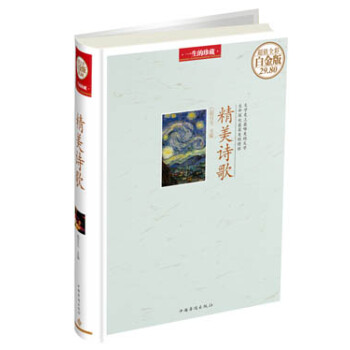
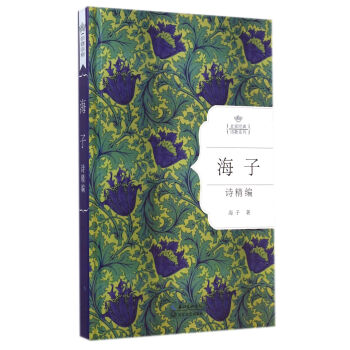
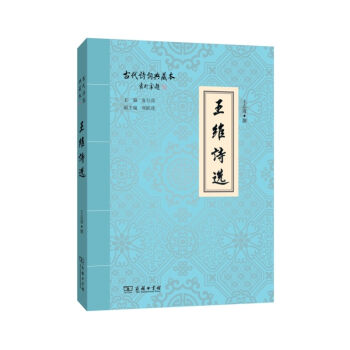
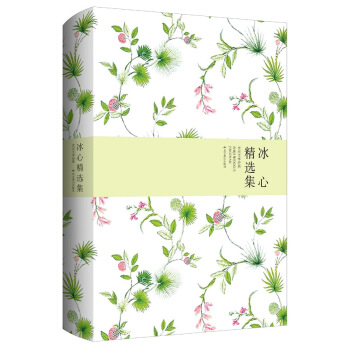
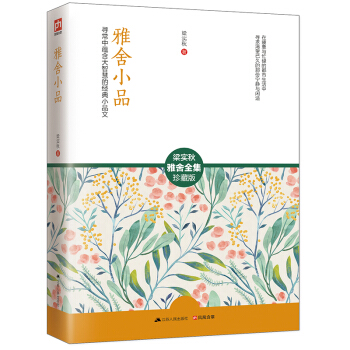
![鼹鼠的月亮河/“漂流屋”王一梅儿童文学精品系列 [7-14岁] pdf epub mobi 电子书 下载](https://pic.windowsfront.com/11819349/568b9512Nb630af23.jpg)

![歪歪路小学(全3册) [6-12岁] pdf epub mobi 电子书 下载](https://pic.windowsfront.com/12024628/57be5223Nab2a2929.jpg)
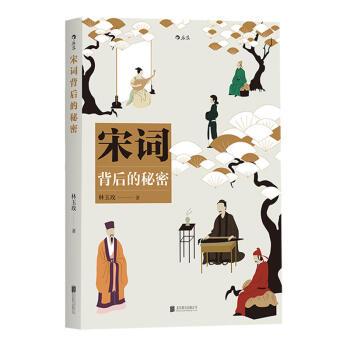
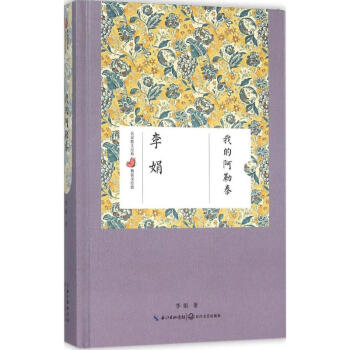
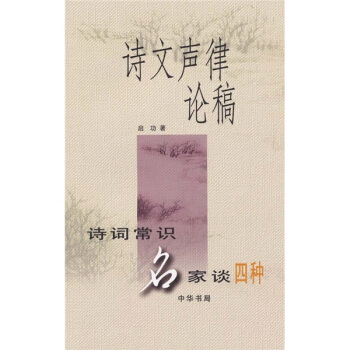
![儿童成长必备知识丛书(第2辑):学前必备古诗词90首(附光盘1张) [3-6岁] pdf epub mobi 电子书 下载](https://pic.windowsfront.com/11151912/rBEHZ1DhetgIAAAAAAk_poc82-EAADfCQPpT5kACT--334.jpg)
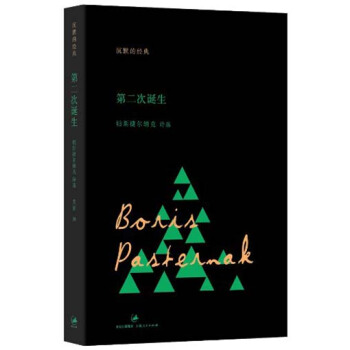
![启发精选纽伯瑞大奖少年小说:月光下的歌谣 [11-14岁] [Sing Down the Moon] pdf epub mobi 电子书 下载](https://pic.windowsfront.com/11561127/543f62c0Nbabe8224.jpg)
![鼹鼠的月亮河(精读本) [7-10岁] pdf epub mobi 电子书 下载](https://pic.windowsfront.com/11581568/54a35d12N6206afaf.jpg)

